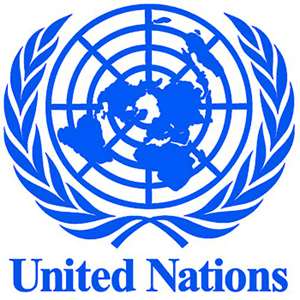
KHARTOUM, Sudan, May 21, 2012/African Press Organization (APO)/ -- The United Nations Resident and Humanitarian Coordinator in Sudan, Mr. Ali Al-Za'tari, has welcomed the continued progress in the airlift from Khartoum to Juba of some 12,000 people of South Sudanese origin who had been stranded for many months at a way-station in Kosti, waiting for onward transportation to South Sudan. The airlift is managed by the International Organization for Migration (IOM) and supported by the Governments of Sudan and South Sudan.
The humanitarian airlift that began one week ago has already transported 4,200 people to South Sudan. “I welcome the cooperation between the Governments of Sudan and South Sudan to facilitate this airlift,” said Mr. Al-Za'tari. The humanitarian community will continue to focus its efforts on assisting those who are the most vulnerable. The Humanitarian Coordinator also welcomed continued progress by the two Governments to regularize the status of people of South Sudanese origin who wish to remain in Sudan. He noted that the South Sudanese Embassy in Khartoum recently started issuing passports and nationality certificates to people of South Sudanese origin. He also welcomed the decision of the Government of Sudan's Minister of the Interior to grant citizens of South Sudan residing in Sudan temporary identification cards.
With regards to South Kordofan and Blue Nile, Mr. Al-Za'tari continued to express concern about the humanitarian situation and stressed that “ the UN will continue to advocate for an end to the fighting and resolution of the conflict by peaceful means, and for humanitarian access and assistance to all civilians in need, wherever they may be located”. With reference to the Abyei area, Mr. Al-Za'tari said that only 5,000 people have returned to the area while more than 100,000 people remain displaced. He said it is high time for humanitarian staff to have access to Abyei from Sudan, noting that at present international humanitarian staff are only able to get to Abyei if they travel via South Sudan.
Concerning Darfur, Mr. Al-Za'tari pointed out that in 2011, for the first time since 2003, there were more verified returns of people to their places of origin than people newly displaced by fighting. “Improved security in some parts of Darfur has allowed these returns to take place and we are now starting to see greater confidence in the return process,” he said. Nevertheless, recent reports of inter-tribal fighting and clashes with armed movements in some parts of Darfur as well as increased criminality are a cause for concern. “Further violence in Darfur not only threatens progress on returns, but also threatens to disrupt recent progress made through the Doha peace process,” said the Humanitarian Coordinator.




 Elisu By-election: "If you call yourself a man, boo Chairman Wontumi again" — Bo...
Elisu By-election: "If you call yourself a man, boo Chairman Wontumi again" — Bo...
 Fuel tanker driver escapes with his life after tanker goes up in flames near Suh...
Fuel tanker driver escapes with his life after tanker goes up in flames near Suh...
 Uniform change: ‘Blue and white are brighter colours’ — Kwasi Kwarteng explains ...
Uniform change: ‘Blue and white are brighter colours’ — Kwasi Kwarteng explains ...
 MoE not changing all public basic school uniforms but only newly built ones — Kw...
MoE not changing all public basic school uniforms but only newly built ones — Kw...
 We’re only painting new public basic schools blue and white – Dr. Adutwum clarif...
We’re only painting new public basic schools blue and white – Dr. Adutwum clarif...
 Bawumia has lost confidence in his own govt’s economic credentials – Beatrice An...
Bawumia has lost confidence in his own govt’s economic credentials – Beatrice An...
 I fought WW2 at age 16 – WO1 Hammond shares At Memoir Launch
I fought WW2 at age 16 – WO1 Hammond shares At Memoir Launch
 GRA-SML deal: Regardless of what benefits have been accrued, the contract was aw...
GRA-SML deal: Regardless of what benefits have been accrued, the contract was aw...
 April 26: Cedi sells at GHS13.75 to $1, GHS13.18 on BoG interbank
April 26: Cedi sells at GHS13.75 to $1, GHS13.18 on BoG interbank
 Champion, promote the interest of women if you become Vice President – Prof. Gya...
Champion, promote the interest of women if you become Vice President – Prof. Gya...
